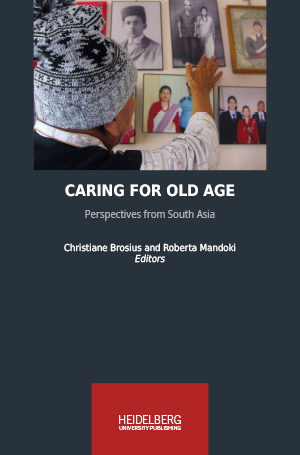Zitationsvorschlag
Lizenz (Kapitel)

Dieses Werk steht unter der Lizenz Creative Commons Namensnennung - Weitergabe unter gleichen Bedingungen 4.0 International.
Identifier (Buch)
Veröffentlicht
Eldercare at a Distance: On Remittances and Everyday Information and Communication Technologies (ICTs) in Indian Transnational Families
Abstract In the Southern Indian state of Kerala, it is common to see international migration as a path towards a more secure financial future, especially as employment opportunities are scarce even for the well-educated. Families, particularly parents, often encourage their young family members to find work abroad as nurses, although they realize that by following this course their family would become scattered around the world. In popular discourse, the image of the elderly parents who are “lonely and abandoned” by their migrating children is pervasive. However, the fieldwork I conducted among families of migrating nurses in Kerala and Oman, a major destination country for nurses from Kerala, shows that family members continue to keep in touch and take care of each other even when living in different countries and continents. This is made possible by easily accessible everyday information and communication technologies (ICTs). In this chapter, I ask what “care”, particularly elderly care, comes to mean when it is practiced at a distance through ICTs. Using the material semiotics approach from science and technology studies (STS), I analyze care in terms of practices that include people as well as technologies. As active participants in what I term “transnational care collectives”, parents, their children and ICTs jointly shape care. I argue that ICTs are not only a communication channel to be used by conversation partners in different locations, but actively participate in and thereby influence what intergenerational care is and how it should be done to be considered good.
Keywords aging, migration, care, ICTs, transnational care collective






